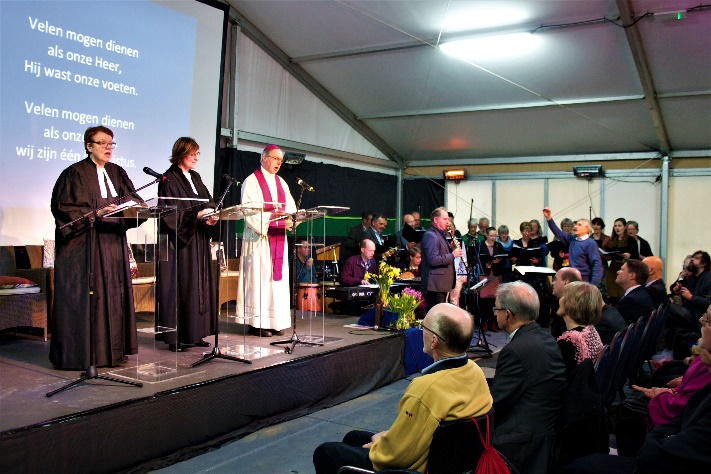
3 Apr 2017 | Focolare Worldwide, Senza categoria
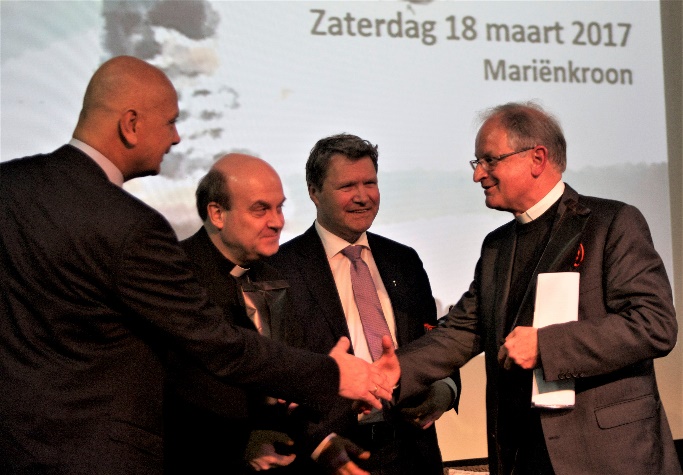 After the historic encounter between the World Lutheran Federation and the Catholic Church last October in Sweden, the 500th anniversary of the Reform has given rise to ecumenical events around the whole world. The March 18th On the Way to Unity Meeting was promoted by the Catholic Athanasios en Willibrord Association for Ecumenism and the Focolare Movement. The date chosen was meant to coincide with the departure of Chiara Lubich, whose commitment to Christian unity is famous. The encounter took place at the Focolare’s Marienkroon village, a hundred kilometres from Amsterdam. Three hundred and eighty people including prominent leaders of several Christian denominations attended. The event showed a people on the way, as the title of the event wished to express. A broad tent was set up that was filled to the brink, until an addition was added for the overflow crowd. The five-hour event included reflection, meals, testimonies, songs and artistic presentations. The highpoint was the moment of common prayer. The large turnout and the fraternal atmosphere created among all, including the leaders of the Churches, made the day seem historic as the director of the Catholic Association for Ecumenism, Geert van Dartel, affirmed. But it was also an “ecumenical feast,” one of the participants remarked.
After the historic encounter between the World Lutheran Federation and the Catholic Church last October in Sweden, the 500th anniversary of the Reform has given rise to ecumenical events around the whole world. The March 18th On the Way to Unity Meeting was promoted by the Catholic Athanasios en Willibrord Association for Ecumenism and the Focolare Movement. The date chosen was meant to coincide with the departure of Chiara Lubich, whose commitment to Christian unity is famous. The encounter took place at the Focolare’s Marienkroon village, a hundred kilometres from Amsterdam. Three hundred and eighty people including prominent leaders of several Christian denominations attended. The event showed a people on the way, as the title of the event wished to express. A broad tent was set up that was filled to the brink, until an addition was added for the overflow crowd. The five-hour event included reflection, meals, testimonies, songs and artistic presentations. The highpoint was the moment of common prayer. The large turnout and the fraternal atmosphere created among all, including the leaders of the Churches, made the day seem historic as the director of the Catholic Association for Ecumenism, Geert van Dartel, affirmed. But it was also an “ecumenical feast,” one of the participants remarked.  “Unity in diversity is not something that we can ‘fabricate’ on our own, but it is a gift from God,” warned Catholic Luther scholar, Hubertus Blaumeiser from the Focolare’s international Abba School centre for studies. Looking back at Lund’s ecumenical agenda, he cited a few words from Chiara Lubich: “The music gets written in Heaven.” It’s up to us to learn how to read that music. In any case, he went on, from the moment that Jesus gave his life for everyone on the cross, unity has been a given. Our task is to respond to that. This explains the first of five “ecumenical imperatives” that were signed in Lund, which recommend that we always begin from the perspective of unity and never separation. But what must be done so that this unity becomes concrete in the midst of oftentimes difficult situations after years of division? Placing ourselves behind the Triune God of Jesus, we are all called to an exodus,” said Blaumeiser, to go out of ourselves and learn to “think and live with the other as our starting point,” and that is “not only at the level of individuals, but also at the level of entire faith communities.” Ultimately, ecumenism is a process to be carried out with Jesus: from death to resurrection. “Unity begins wherever one has the courage to face the difficulty, to enter in with Jesus into the wounds of separation, welcoming one another even when that can be tiresome and difficult. The “ecumenical imperatives” say that we have to let ourselves be changed by the encounter with the other and thereby seek the visible unity [of Christians] and bear witness to the power of the Gospel together. The president of the Dutch Catholic Bishops Conference, Bishop Van den Hende; the General Secretary of the Protestant Churches of the Netherlands, Dr Reuver; and National Coordinator of the Pentecostal Community, Peter Sleebos, responded to those ideas. Commenting on the orientations that were described, they expressed further motives and thoughts, drawing on their own faith traditions. In the afternoon ecumenical testimonies were presented that illustrated what Chiara Lubich liked to call the “dialogue of life”. This was followed by an open discussion with the presenters. One participant commented: “This Saturday we managed to ‘play’ the beautiful notes of the music that is written in Heaven ‘together’.” “This meeting,” declared Pastor René De Reuver to the Catholic Journal, “was very special. I experienced the presence of Christ in the enthusiasm, in the communion and in the passion for union in Him. This doesn’t take away the differences, but leads us to enrich one another mutually.”
“Unity in diversity is not something that we can ‘fabricate’ on our own, but it is a gift from God,” warned Catholic Luther scholar, Hubertus Blaumeiser from the Focolare’s international Abba School centre for studies. Looking back at Lund’s ecumenical agenda, he cited a few words from Chiara Lubich: “The music gets written in Heaven.” It’s up to us to learn how to read that music. In any case, he went on, from the moment that Jesus gave his life for everyone on the cross, unity has been a given. Our task is to respond to that. This explains the first of five “ecumenical imperatives” that were signed in Lund, which recommend that we always begin from the perspective of unity and never separation. But what must be done so that this unity becomes concrete in the midst of oftentimes difficult situations after years of division? Placing ourselves behind the Triune God of Jesus, we are all called to an exodus,” said Blaumeiser, to go out of ourselves and learn to “think and live with the other as our starting point,” and that is “not only at the level of individuals, but also at the level of entire faith communities.” Ultimately, ecumenism is a process to be carried out with Jesus: from death to resurrection. “Unity begins wherever one has the courage to face the difficulty, to enter in with Jesus into the wounds of separation, welcoming one another even when that can be tiresome and difficult. The “ecumenical imperatives” say that we have to let ourselves be changed by the encounter with the other and thereby seek the visible unity [of Christians] and bear witness to the power of the Gospel together. The president of the Dutch Catholic Bishops Conference, Bishop Van den Hende; the General Secretary of the Protestant Churches of the Netherlands, Dr Reuver; and National Coordinator of the Pentecostal Community, Peter Sleebos, responded to those ideas. Commenting on the orientations that were described, they expressed further motives and thoughts, drawing on their own faith traditions. In the afternoon ecumenical testimonies were presented that illustrated what Chiara Lubich liked to call the “dialogue of life”. This was followed by an open discussion with the presenters. One participant commented: “This Saturday we managed to ‘play’ the beautiful notes of the music that is written in Heaven ‘together’.” “This meeting,” declared Pastor René De Reuver to the Catholic Journal, “was very special. I experienced the presence of Christ in the enthusiasm, in the communion and in the passion for union in Him. This doesn’t take away the differences, but leads us to enrich one another mutually.”

29 Mar 2017 | Focolare Worldwide
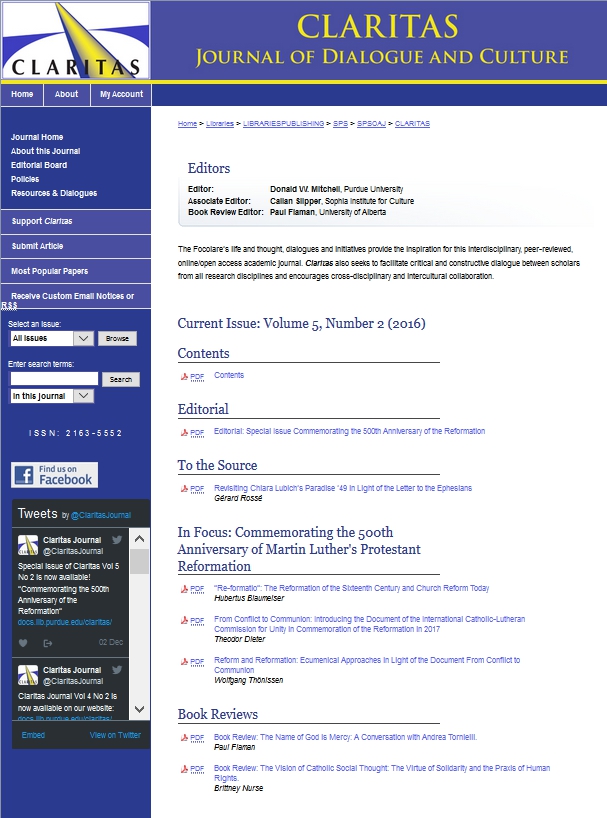 Courageous impulse towards ecumenical commitment. Catholics and Lutherans can walk together on a path towards a full reconciliation. 500 years have passed since Luther’s Reformation movement, the commemoration of which will last a year, starting from 30 October last year to 31 October 2017 (a symbolical date that recalls the publication in 1517, of the Ninety-Five theses of Luther on indulgences and justification, in Wittenberg). Inauguration events started with a meeting in the Lutheran Cathedral of Lund in Sweden, between Bishop Munib Younan, President of the World Lutheran Federation, and Pope Francis. On that occasion, the Pope had invited all Christians united by baptism, to announce together the Word of God, putting an end to all the century-old theological disputes that had separated the two Churches, and underlining the common gifts received thanks to dialogue and mutual listening. The Italian journal Nuova Umanità (New Humanity) dedicated its 221st edition to this event, focusing on the work entitled, “Half a millennium after Luther” (published in March 2016). Curated by Hubertus Blaumeiser, it presents the essays of a Lutheran theologian, Theodor Dieter, and a Catholic theologian, Wolfgang Thönissen. The historically important Lund event was preceded by the document, “From conflict to communion,” published in 2013 by the Lutheran–Catholic Commission for Unity, which works on behalf of the World Lutheran Federation and the Pontifical Council for the promotion of unity among Christians. The text indicates five “ecumenical imperatives” to definitively overcome the causes of disagreements and live a season of common commitment in mutual trust. The First imperative: Catholics and Lutherans strongly united by baptism should start always from the perspective of unity and not from the point of view of division, to strengthen what they have in common, instead of underlining and experiencing differences. The Catholic and Lutheran Churches, in the course of history have defined themselves through disagreements. Now there is need of the contrary, of the experience of encouragement and reciprocal criticism. Then comes the second imperative: continually letting oneself be transformed by the encounter with the other and the reciprocal witness of faith, through dialogue that opens to various ways and degrees of communion. The Third: renewed commitment of oneself to seek visible unity and elaborate and develop together the concrete steps this implies, and constantly strive towards this objective. The Fourth: rediscover together the power of the Gospel of Jesus Christ for our time. And lastly the fifth: the missionary task of ecumenism becomes greater inasmuch as our societies become pluralistic from the religious standpoint, and this is why together we have to bear witness to God’s mercy in the Gospel announcement and service to the world. The report ends by saying: «The beginnings of the Reformation will be remembered in an adequate and just manner when Lutherans and Catholics will listen to the Gospel of Jesus Christ together, and will once again let themselves be called to form a community together with the Lord.» The genesis and development of such a document was deepened in edition 223 of New Humanity, dedicated specifically to this decisive step for ecumenism. Following the trail of the Lund event and as a logical consequence of the “theoretical” answer given by the Ecumenical Council of Churches, at the end of February in the town of Ottmaring and characterised by an outstanding ecumenical calling, the President and Co-President of the Focolare, in the name of the entire Movement undertook the commitment to testify to and work for communion between the Churches beyond all divisions. «As a global movement with many members who are Christians of many Churches, and which is thus already living the experience of a people united by mutual love […] we recognise in the Lund meeting a true and proper kairos, a sign of God for our time, which pushes Christians to commit themselves even more, to make the testament of Jesus – that all may be one – a reality. »
Courageous impulse towards ecumenical commitment. Catholics and Lutherans can walk together on a path towards a full reconciliation. 500 years have passed since Luther’s Reformation movement, the commemoration of which will last a year, starting from 30 October last year to 31 October 2017 (a symbolical date that recalls the publication in 1517, of the Ninety-Five theses of Luther on indulgences and justification, in Wittenberg). Inauguration events started with a meeting in the Lutheran Cathedral of Lund in Sweden, between Bishop Munib Younan, President of the World Lutheran Federation, and Pope Francis. On that occasion, the Pope had invited all Christians united by baptism, to announce together the Word of God, putting an end to all the century-old theological disputes that had separated the two Churches, and underlining the common gifts received thanks to dialogue and mutual listening. The Italian journal Nuova Umanità (New Humanity) dedicated its 221st edition to this event, focusing on the work entitled, “Half a millennium after Luther” (published in March 2016). Curated by Hubertus Blaumeiser, it presents the essays of a Lutheran theologian, Theodor Dieter, and a Catholic theologian, Wolfgang Thönissen. The historically important Lund event was preceded by the document, “From conflict to communion,” published in 2013 by the Lutheran–Catholic Commission for Unity, which works on behalf of the World Lutheran Federation and the Pontifical Council for the promotion of unity among Christians. The text indicates five “ecumenical imperatives” to definitively overcome the causes of disagreements and live a season of common commitment in mutual trust. The First imperative: Catholics and Lutherans strongly united by baptism should start always from the perspective of unity and not from the point of view of division, to strengthen what they have in common, instead of underlining and experiencing differences. The Catholic and Lutheran Churches, in the course of history have defined themselves through disagreements. Now there is need of the contrary, of the experience of encouragement and reciprocal criticism. Then comes the second imperative: continually letting oneself be transformed by the encounter with the other and the reciprocal witness of faith, through dialogue that opens to various ways and degrees of communion. The Third: renewed commitment of oneself to seek visible unity and elaborate and develop together the concrete steps this implies, and constantly strive towards this objective. The Fourth: rediscover together the power of the Gospel of Jesus Christ for our time. And lastly the fifth: the missionary task of ecumenism becomes greater inasmuch as our societies become pluralistic from the religious standpoint, and this is why together we have to bear witness to God’s mercy in the Gospel announcement and service to the world. The report ends by saying: «The beginnings of the Reformation will be remembered in an adequate and just manner when Lutherans and Catholics will listen to the Gospel of Jesus Christ together, and will once again let themselves be called to form a community together with the Lord.» The genesis and development of such a document was deepened in edition 223 of New Humanity, dedicated specifically to this decisive step for ecumenism. Following the trail of the Lund event and as a logical consequence of the “theoretical” answer given by the Ecumenical Council of Churches, at the end of February in the town of Ottmaring and characterised by an outstanding ecumenical calling, the President and Co-President of the Focolare, in the name of the entire Movement undertook the commitment to testify to and work for communion between the Churches beyond all divisions. «As a global movement with many members who are Christians of many Churches, and which is thus already living the experience of a people united by mutual love […] we recognise in the Lund meeting a true and proper kairos, a sign of God for our time, which pushes Christians to commit themselves even more, to make the testament of Jesus – that all may be one – a reality. »
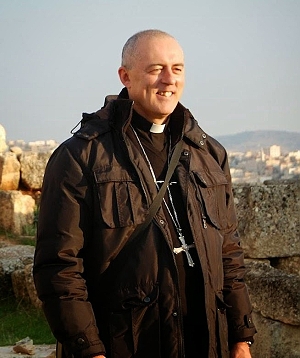
26 Mar 2017 | Focolare Worldwide
 I arrived in Baghdad as the Apostolic Nuncio to Iraq and Jordan, two weeks after the terrible 2010 attack in the Syrian-Catholic cathedral that provoked the death of two priests, 44 faithful and five soldiers. Upon visiting the cathedral, one can imagine the desolation and I had the deep impression that I had been sent there to share that pain. The relationships between Christians and Muslims had been compromised for years, up to the point that also in the Nunciature, for any work or purchase only Christians were chosen. I felt I had to go against the current. I started to try learning Arab (unfortunately with little success!) to be able to greet everyone. When I was allowed, I would chat with the guards assigned to protect the Nunciature, at times sharing the dinner they prepared, even if the soldiers were not the best of cooks. The nun who acted as my interpreter did not agree too much with this, but I was convinced that something had to be done. I felt I had to “trust” even if this brought about some surprise. Once a Muslim barber to whom I started to go to have the hair in my ears removed, put a bit of gas from his lighter into my ear to burn the hair. I knew it was ingenuity on my part, but done on purpose in order to see the other person’s viewpoint. The only Muslim who worked in the Nunciature was the gardener. When I left he said to me: “So you are going, and I wish you could leave me a bit of your peace.” He probably had seen that it was an interior peace which only Jesus can give. Once when speaking to the gen (the youth of the Focolare), Chiara Lubich recalled the Emperor Constantine, who had seen a cross in the sky bearing the words: “In this sign you will conquer” – and said that our weapon is Jesus Forsaken and there is no other way for unity other than the cross. There Jesus had taken upon himself every division and separation, and rose from the dead. Also for us the defeat will be transformed into victory. In May 2015 I was transferred to Cuba. The preparations for Pope Francis’s visit were underway. All was proceeding well, but a small diplomatic incident at the last minute shook the preparation activities. And in a second I lost my interior peace, precisely in the presence of the Pope. Upon entering the Havana Revolution square for the solemn Mass, I saw the stylised picture of Che Guevara, with the words: “Hasta la victoria, siempre!” (Towards victory, always!). I immediately thought of the key of our victory: Jesus Forsaken. And I understood that I could not reach victory if not by passing through that defeat. Jesus could not resurrect without dying. Jesus Forsaken is not the instrument to be used in cases of necessity to solve our problems. He is the Spouse with whom we should be “one flesh.” And if I complain about something or someone, I realise that I am complaining about Him. I can’t say that I have chosen Him if I prefer not to have problems. I know that I should be happy when there are some rather than when there are none. So the problems, divisions, wars, poverty etc., no longer frighten me. I don’t live waiting for them to end soon, but in the hope that arises from the certainty that in Him these have already been resolved. So I live serenely and can transmit peace also to those who do not share my faith, like the gardener of the Nunciature in Baghdad.
I arrived in Baghdad as the Apostolic Nuncio to Iraq and Jordan, two weeks after the terrible 2010 attack in the Syrian-Catholic cathedral that provoked the death of two priests, 44 faithful and five soldiers. Upon visiting the cathedral, one can imagine the desolation and I had the deep impression that I had been sent there to share that pain. The relationships between Christians and Muslims had been compromised for years, up to the point that also in the Nunciature, for any work or purchase only Christians were chosen. I felt I had to go against the current. I started to try learning Arab (unfortunately with little success!) to be able to greet everyone. When I was allowed, I would chat with the guards assigned to protect the Nunciature, at times sharing the dinner they prepared, even if the soldiers were not the best of cooks. The nun who acted as my interpreter did not agree too much with this, but I was convinced that something had to be done. I felt I had to “trust” even if this brought about some surprise. Once a Muslim barber to whom I started to go to have the hair in my ears removed, put a bit of gas from his lighter into my ear to burn the hair. I knew it was ingenuity on my part, but done on purpose in order to see the other person’s viewpoint. The only Muslim who worked in the Nunciature was the gardener. When I left he said to me: “So you are going, and I wish you could leave me a bit of your peace.” He probably had seen that it was an interior peace which only Jesus can give. Once when speaking to the gen (the youth of the Focolare), Chiara Lubich recalled the Emperor Constantine, who had seen a cross in the sky bearing the words: “In this sign you will conquer” – and said that our weapon is Jesus Forsaken and there is no other way for unity other than the cross. There Jesus had taken upon himself every division and separation, and rose from the dead. Also for us the defeat will be transformed into victory. In May 2015 I was transferred to Cuba. The preparations for Pope Francis’s visit were underway. All was proceeding well, but a small diplomatic incident at the last minute shook the preparation activities. And in a second I lost my interior peace, precisely in the presence of the Pope. Upon entering the Havana Revolution square for the solemn Mass, I saw the stylised picture of Che Guevara, with the words: “Hasta la victoria, siempre!” (Towards victory, always!). I immediately thought of the key of our victory: Jesus Forsaken. And I understood that I could not reach victory if not by passing through that defeat. Jesus could not resurrect without dying. Jesus Forsaken is not the instrument to be used in cases of necessity to solve our problems. He is the Spouse with whom we should be “one flesh.” And if I complain about something or someone, I realise that I am complaining about Him. I can’t say that I have chosen Him if I prefer not to have problems. I know that I should be happy when there are some rather than when there are none. So the problems, divisions, wars, poverty etc., no longer frighten me. I don’t live waiting for them to end soon, but in the hope that arises from the certainty that in Him these have already been resolved. So I live serenely and can transmit peace also to those who do not share my faith, like the gardener of the Nunciature in Baghdad.
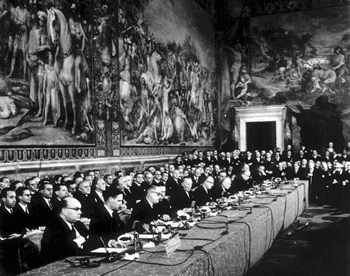
25 Mar 2017 | Focolare Worldwide
 What Europe should be United Europe is another step towards a united world. It is a step forward and an achievement under the pressure of popular requests, natural rights, Christian revelation, moral and spiritual forces, with the addition of economic and political, and scientific and technological pressure. All these propel towards unification, the final evolution of reason and morals, of life in time and in eternity. For Clement of Alexandria – heir of Greek wisdom – unity is the good, and producer of life; division is the evil and generator of death. Civilisation grows proportionately with how much it unifies people. For Huxley, every new progress of civilisation is a progress in charity, which is the sentiment which tends to make everyone one. It is no wonder since it is the soul of Christ whose testament ended in the vow: «so that all may be one.» Charity leads to integration, communion, and solidarity, also in politics and economy. And here, between the essential forces that press toward European integration, we want to illustrate the forces of the spirit, leaving it to illustrate the political, economic, and social aspects, etc. Igino Giordani, «Fides», May 1961, p.130 Christianity and Europe Europe is full of resentment like a storage of explosives, kept alive by philosophies and false patriotisms, mythologies and egoistic interests. In order not to explode, Europe needs to remove all this inflammable material. It needs a universal reconcilement, which could free it from the past so it could look to the future. Whoever will carry out «this ministry of reconciliation?» It is Christianity: this well of sanctity, which Europe still guards and still communicates to other continents. And Christianity implies a unification in freedom and peace, with the elimination of wars and other reasons for friction. Igino Giordani, «Fides», May 1961, p.131 The soul of Europe Europe already has a soul: Christianity, its essence and its genesis. In this common spiritual breath, also the material and human factors blend and arise, vivifying themselves with a universal ideal. And so the peoples of Europe, upon reviving these principles at the base of their history, melting them in the ideal flame of solidarity, the fruit of love – which is divine intelligence – will find in its rationality, coexistence, urgency and need of it, the solution, firstly to their problems. This is the a decisive moment, in which an internal war – which today more than ever before, appears irrational and fratricide – could mark the definitive catastrophe. Love instead, putting the good in circulation, will be able mark the final salvation. Igino Giordani, «Fides», May 1961, p.131
What Europe should be United Europe is another step towards a united world. It is a step forward and an achievement under the pressure of popular requests, natural rights, Christian revelation, moral and spiritual forces, with the addition of economic and political, and scientific and technological pressure. All these propel towards unification, the final evolution of reason and morals, of life in time and in eternity. For Clement of Alexandria – heir of Greek wisdom – unity is the good, and producer of life; division is the evil and generator of death. Civilisation grows proportionately with how much it unifies people. For Huxley, every new progress of civilisation is a progress in charity, which is the sentiment which tends to make everyone one. It is no wonder since it is the soul of Christ whose testament ended in the vow: «so that all may be one.» Charity leads to integration, communion, and solidarity, also in politics and economy. And here, between the essential forces that press toward European integration, we want to illustrate the forces of the spirit, leaving it to illustrate the political, economic, and social aspects, etc. Igino Giordani, «Fides», May 1961, p.130 Christianity and Europe Europe is full of resentment like a storage of explosives, kept alive by philosophies and false patriotisms, mythologies and egoistic interests. In order not to explode, Europe needs to remove all this inflammable material. It needs a universal reconcilement, which could free it from the past so it could look to the future. Whoever will carry out «this ministry of reconciliation?» It is Christianity: this well of sanctity, which Europe still guards and still communicates to other continents. And Christianity implies a unification in freedom and peace, with the elimination of wars and other reasons for friction. Igino Giordani, «Fides», May 1961, p.131 The soul of Europe Europe already has a soul: Christianity, its essence and its genesis. In this common spiritual breath, also the material and human factors blend and arise, vivifying themselves with a universal ideal. And so the peoples of Europe, upon reviving these principles at the base of their history, melting them in the ideal flame of solidarity, the fruit of love – which is divine intelligence – will find in its rationality, coexistence, urgency and need of it, the solution, firstly to their problems. This is the a decisive moment, in which an internal war – which today more than ever before, appears irrational and fratricide – could mark the definitive catastrophe. Love instead, putting the good in circulation, will be able mark the final salvation. Igino Giordani, «Fides», May 1961, p.131
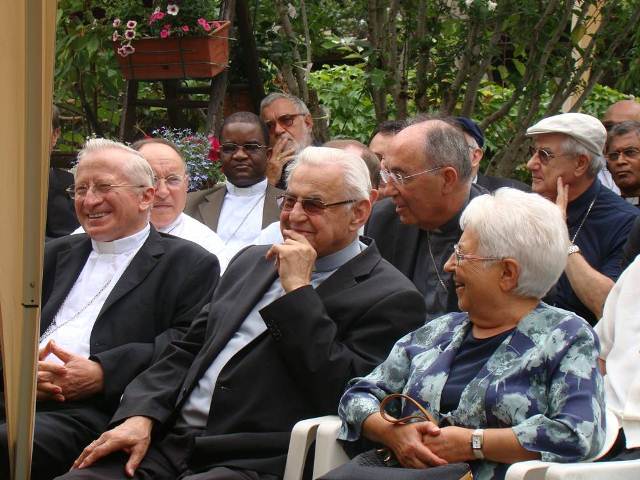
18 Mar 2017 | Focolare Worldwide
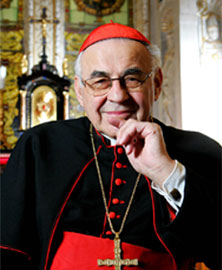 As a child, he dreamt of being a pilot, but an attraction to the priesthood stuck with him from the time he was eleven. He was born on May 17, 1932 in Lisnice, the Province of Pisek in Southern Bohemia. From 1952 to 1953 he was a worker. In 1960, following his graduation, he worked as an archivist but soon abandoned that occupation to study theology. In 1968 he was ordained to the priesthood. During a visit to East Germany in the 1960s, he met a layman and some priests who were living the spirituality of the Focolare Movement. He was taken by the presence of Jesus among this group of Christians, a presence that He promises when two or more are united in His name (see Mt 18:20). That experience of communion would accompany him for the rest of his life. His pastoral work in Ceské Budejovice annoyed the Communist State system, and in 1971 he was transferred to a parish in Selva Boema. Seven years later, because of his popularity especially among young people, his permission to carry out his priestly ministry was revoked. “I lost my license. I can’t say mass anymore,” he explained to his parishioners. “I preached and talked about the cross and recommended that we carry it; now is the moment for me to carry it.” Officially returned to the lay state, Chiara Lubich accepted his request to enter the focolare in Prague that was opened in 1981. He found a job as a window-washer that lasted for 10 years. He would often say: “I can’t preach or share the sacraments in public, but when I look at the cross I realize that Jesus who is the one and only High Priest could hardly even talk when he was on the cross, and his hands were nailed in. I became convinced: ‘Now, you’re close to the High Priest’ and I embraced Jesus Forsaken. It was the spirituality of the Focolare that guided me in this direction. I felt the power of which Isaiah 53 speaks: ‘The man of suffering’ (…) I lived for a long time of this light: everything that was ugly could serve for my edification. I realized, without exaggerating, that those ten years of washing windows had been the most blessed years of my life.” He would often repeat: “I hold it to be a miracle that God spread the spirituality of unity in the Socialist world where everything was under surveillance. He always knows the ways in.”
As a child, he dreamt of being a pilot, but an attraction to the priesthood stuck with him from the time he was eleven. He was born on May 17, 1932 in Lisnice, the Province of Pisek in Southern Bohemia. From 1952 to 1953 he was a worker. In 1960, following his graduation, he worked as an archivist but soon abandoned that occupation to study theology. In 1968 he was ordained to the priesthood. During a visit to East Germany in the 1960s, he met a layman and some priests who were living the spirituality of the Focolare Movement. He was taken by the presence of Jesus among this group of Christians, a presence that He promises when two or more are united in His name (see Mt 18:20). That experience of communion would accompany him for the rest of his life. His pastoral work in Ceské Budejovice annoyed the Communist State system, and in 1971 he was transferred to a parish in Selva Boema. Seven years later, because of his popularity especially among young people, his permission to carry out his priestly ministry was revoked. “I lost my license. I can’t say mass anymore,” he explained to his parishioners. “I preached and talked about the cross and recommended that we carry it; now is the moment for me to carry it.” Officially returned to the lay state, Chiara Lubich accepted his request to enter the focolare in Prague that was opened in 1981. He found a job as a window-washer that lasted for 10 years. He would often say: “I can’t preach or share the sacraments in public, but when I look at the cross I realize that Jesus who is the one and only High Priest could hardly even talk when he was on the cross, and his hands were nailed in. I became convinced: ‘Now, you’re close to the High Priest’ and I embraced Jesus Forsaken. It was the spirituality of the Focolare that guided me in this direction. I felt the power of which Isaiah 53 speaks: ‘The man of suffering’ (…) I lived for a long time of this light: everything that was ugly could serve for my edification. I realized, without exaggerating, that those ten years of washing windows had been the most blessed years of my life.” He would often repeat: “I hold it to be a miracle that God spread the spirituality of unity in the Socialist world where everything was under surveillance. He always knows the ways in.” 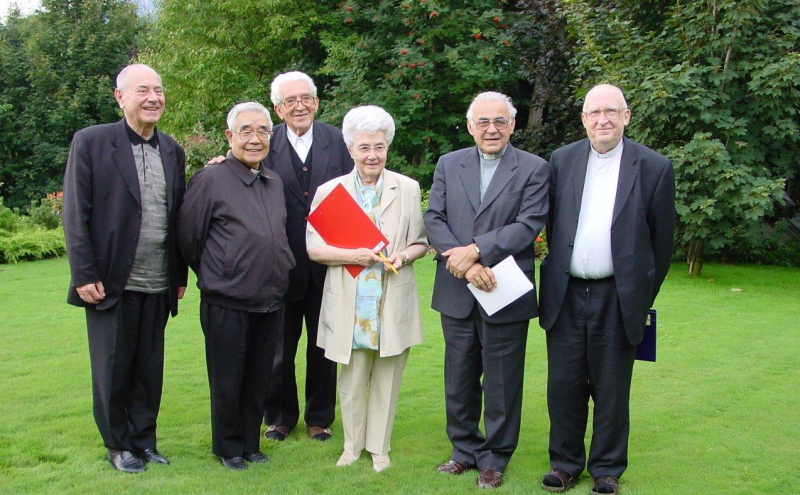 With the Velvet Revolution in 1989 he became pastor again. In 1990 he was named bishop of Ceské Budejovice and, in the following years, Archbishop of Prague. From 1992 to 2000 he guided the Czech Bishops Conference and from 1993-2001 becamse President of the Council of the Bishops Conferences of Europe. On November 26, 1994, he was created cardinal. Following the death of Bishop Klaus Hemmerle in January 1994, who began the branch of the Bishop Friends of the Focolare Movement, the foundress invited Archbishop of Prague to assume the role as moderator of that branch of the Movement. He succeded Bishop Hemmerle who had been a great theologian and charismatic figure. It seemed too demanding to him, but Chiara Lubich assured him: “Don’t be afraid, Your Emminance, you won’t be alone. You’ll go ahead as a body.” The cardinal carried out this task for 18 years, convoking and supporting numerous international meetings of bishops from both the Catholic and other Churches, which were held in Castel Gandolfo, Italy, Istanbul, Jerusalem, Beirut, Augsburg, Wittenburg, London, Geneva, El Cairo, just to name a few.
With the Velvet Revolution in 1989 he became pastor again. In 1990 he was named bishop of Ceské Budejovice and, in the following years, Archbishop of Prague. From 1992 to 2000 he guided the Czech Bishops Conference and from 1993-2001 becamse President of the Council of the Bishops Conferences of Europe. On November 26, 1994, he was created cardinal. Following the death of Bishop Klaus Hemmerle in January 1994, who began the branch of the Bishop Friends of the Focolare Movement, the foundress invited Archbishop of Prague to assume the role as moderator of that branch of the Movement. He succeded Bishop Hemmerle who had been a great theologian and charismatic figure. It seemed too demanding to him, but Chiara Lubich assured him: “Don’t be afraid, Your Emminance, you won’t be alone. You’ll go ahead as a body.” The cardinal carried out this task for 18 years, convoking and supporting numerous international meetings of bishops from both the Catholic and other Churches, which were held in Castel Gandolfo, Italy, Istanbul, Jerusalem, Beirut, Augsburg, Wittenburg, London, Geneva, El Cairo, just to name a few.  The membership of the Bishops in the Work of Mary is entirely spiritual and does not interfere in any way with their duties as bishops, as established by the Church. They find that the spirituality of unity is “in profound harmony with the episcopal charism. It reinforces the effective and affective collegiality and unity with the Holy Father, among the bishops, and helps them to actualize the teachings of the Second Vatican Council on the Church-Communion.” This is written in their rule of life for the “Bishop Friends of the Movement” which was recognized by John Paul II and approved by the Pontifical Council of the Laity in a letter dated February 14, 1998. Also the heads of several other Christian Church’s have expressed their appreciation for this initiative. See also: News.va – Telegram of condolences for the death of Cardinal Miloslav Vlk
The membership of the Bishops in the Work of Mary is entirely spiritual and does not interfere in any way with their duties as bishops, as established by the Church. They find that the spirituality of unity is “in profound harmony with the episcopal charism. It reinforces the effective and affective collegiality and unity with the Holy Father, among the bishops, and helps them to actualize the teachings of the Second Vatican Council on the Church-Communion.” This is written in their rule of life for the “Bishop Friends of the Movement” which was recognized by John Paul II and approved by the Pontifical Council of the Laity in a letter dated February 14, 1998. Also the heads of several other Christian Church’s have expressed their appreciation for this initiative. See also: News.va – Telegram of condolences for the death of Cardinal Miloslav Vlk
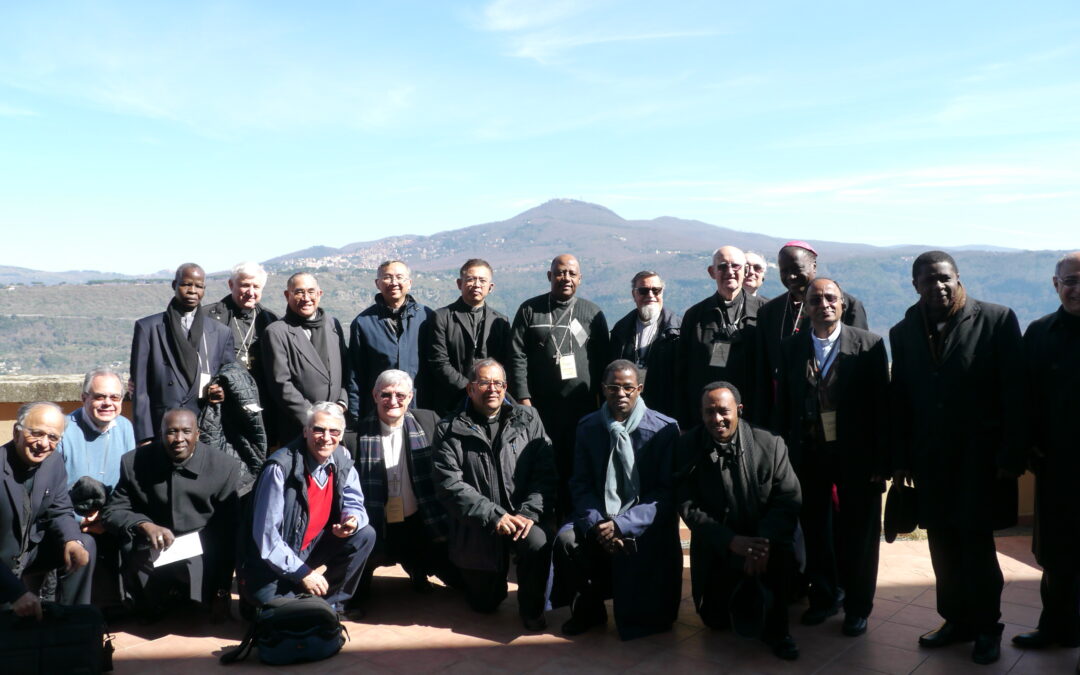
18 Mar 2017 | Focolare Worldwide
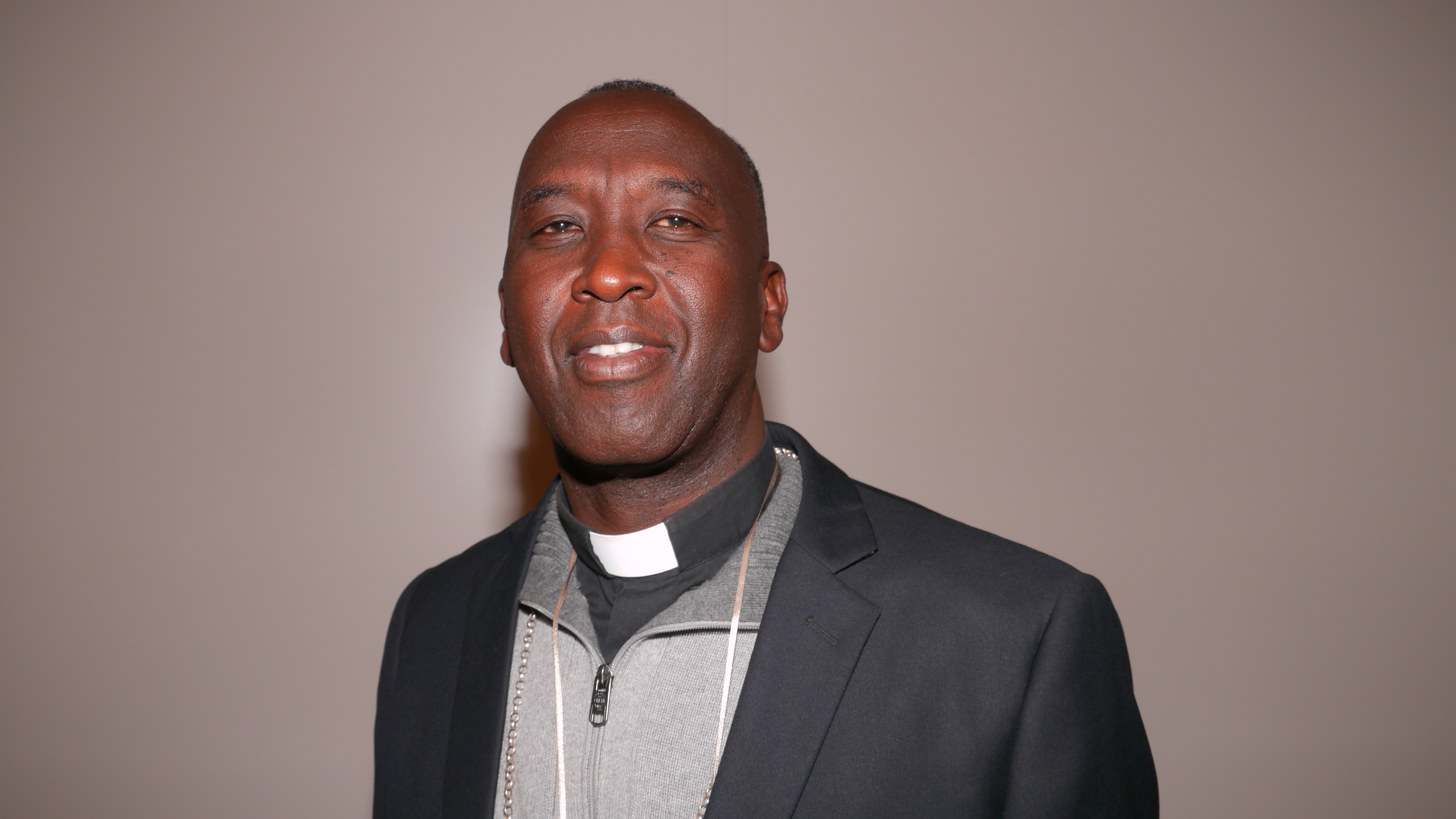 Our diocese of Lodwar – Bishop Dominic Kimengich recounts – is situated in Turkana County (Kenya), bordering with Uganda, South Sudan and Ethiopia. It is 700 km away from Nairobi. The travelers who come to us have to ensure that there is a police escort along the route, so as not to encounter bandits and robbers in the frequent raids. Due to climactic changes, it has not rained for a long time, with the terrible consequence of the shortage that has affected the entire Turkana area. Sixty percent of the population still live the nomad lifestyle and up to now have survived by raising camels, sheep, goats, donkeys and cattle. Now that there is no food or pastures for the cattle, they are forced to migrate to nearby countries. Given that this is a zone of confines, the many conflicts between bordering tribes battling for survival provoke the death of many innocent people, among which are women and children. In the diocese we have a huge refugee camp called Kakuma, with almost 200,000 refugees coming mostly from South Sudan, where the situation is worsening each day. But many also come from Somalia. We find ourselves in a very difficult situation since not even the inhabitants of Lodwar have enough food and water. Many children have even stopped going to school for lack of food. In 1985 when I was in the seminary, someone told me about the Focolare spirituality, but once a priest I was assigned to a parish where it was difficult to keep in contact with the Movement. It was only when I became a Bishop that I was able to attend some meetings in Nairobi. In 2012, to celebrate the 50th year of evangelisation, we thought of inviting the bishops of the surrounding dioceses: Uganda, South Sudan, Ethiopia and other four dioceses in Kenya, to speak about peace and reflect on what we can do. Ten Bishops attended and we got together for three days, a meeting which is now held every year. We can say that every time we would meet, the conflict was reduced. Once I went to visit Bishop Markos of Ethiopia, who is also present in this congress and from the unity built also with the other bishops, we find the strength to bring ahead our ministry in such a troubled land.
Our diocese of Lodwar – Bishop Dominic Kimengich recounts – is situated in Turkana County (Kenya), bordering with Uganda, South Sudan and Ethiopia. It is 700 km away from Nairobi. The travelers who come to us have to ensure that there is a police escort along the route, so as not to encounter bandits and robbers in the frequent raids. Due to climactic changes, it has not rained for a long time, with the terrible consequence of the shortage that has affected the entire Turkana area. Sixty percent of the population still live the nomad lifestyle and up to now have survived by raising camels, sheep, goats, donkeys and cattle. Now that there is no food or pastures for the cattle, they are forced to migrate to nearby countries. Given that this is a zone of confines, the many conflicts between bordering tribes battling for survival provoke the death of many innocent people, among which are women and children. In the diocese we have a huge refugee camp called Kakuma, with almost 200,000 refugees coming mostly from South Sudan, where the situation is worsening each day. But many also come from Somalia. We find ourselves in a very difficult situation since not even the inhabitants of Lodwar have enough food and water. Many children have even stopped going to school for lack of food. In 1985 when I was in the seminary, someone told me about the Focolare spirituality, but once a priest I was assigned to a parish where it was difficult to keep in contact with the Movement. It was only when I became a Bishop that I was able to attend some meetings in Nairobi. In 2012, to celebrate the 50th year of evangelisation, we thought of inviting the bishops of the surrounding dioceses: Uganda, South Sudan, Ethiopia and other four dioceses in Kenya, to speak about peace and reflect on what we can do. Ten Bishops attended and we got together for three days, a meeting which is now held every year. We can say that every time we would meet, the conflict was reduced. Once I went to visit Bishop Markos of Ethiopia, who is also present in this congress and from the unity built also with the other bishops, we find the strength to bring ahead our ministry in such a troubled land. 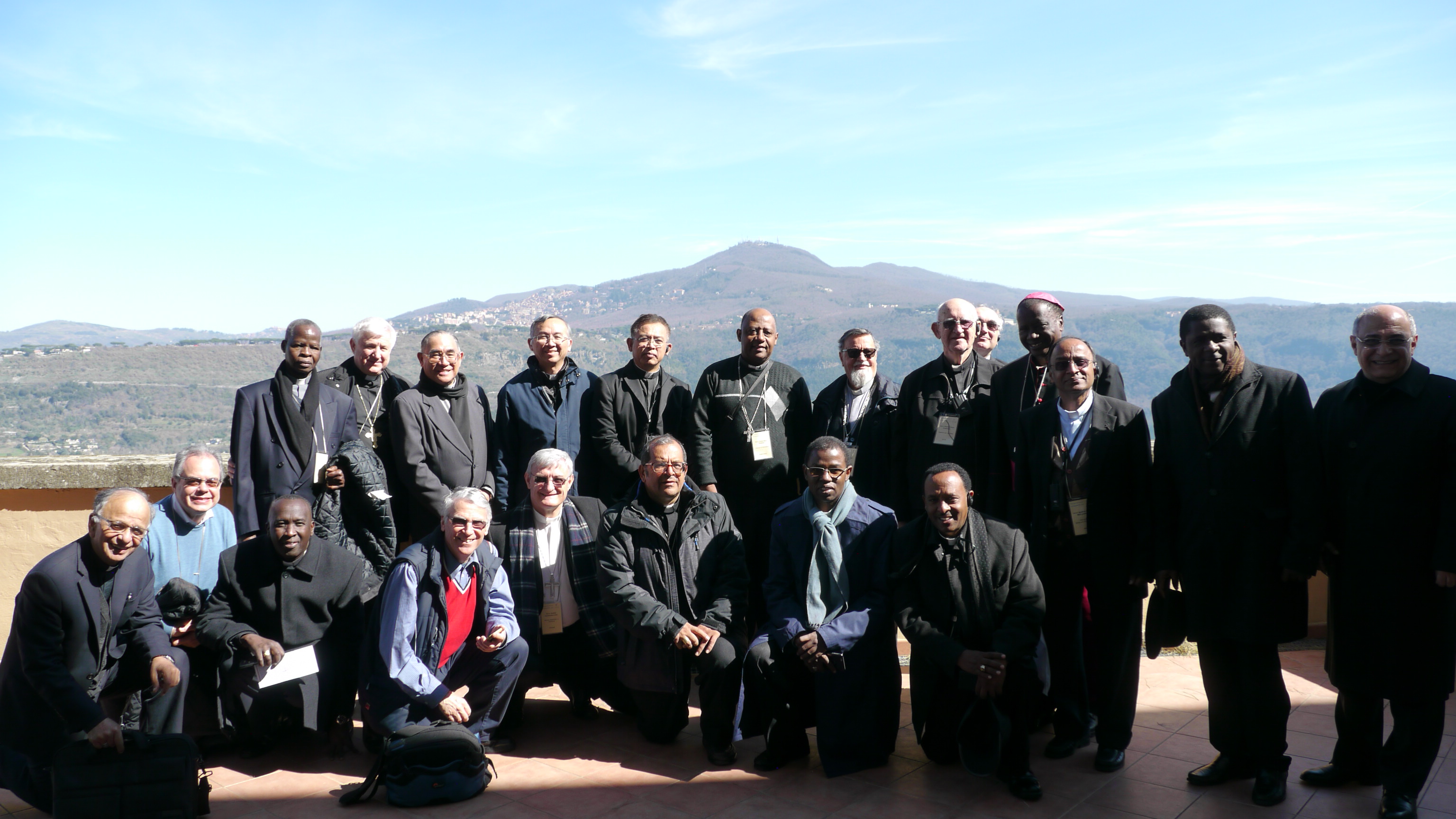 Here in Castel Gandolfo it’s so wonderful to be able to share our own experience with bishops of the whole world and together go deeper into the charism of unity, which teaches us in a practical way on how to live – also as bishops – a genuine love in the spirit of fraternity. Participating in this Congress was a big testimony of God’s love for me and of how He wants us to love one another as Jesus loved us. The theme chosen for this year is greatly in line with the reality of my life and of the territory I come from. It is only seeing things from the point of view of Jesus crucified and abandoned that we can hope in a world where people can learn to live in peace, sharing what they have up to the point of embracing one another as sons of the same God the Father. As I prepare to return to my diocese I can testify with certainty that I am not the same person as before. I feel strengthened by unity with my bishop brothers. In unity in Jesus Forsaken, I know that I am not alone in that part of Kenya in facing the many difficult situations. Jesus is with me, and is very close. I also know that I can count on the prayers of the whole Movement. I am very grateful to God who made all this possible.
Here in Castel Gandolfo it’s so wonderful to be able to share our own experience with bishops of the whole world and together go deeper into the charism of unity, which teaches us in a practical way on how to live – also as bishops – a genuine love in the spirit of fraternity. Participating in this Congress was a big testimony of God’s love for me and of how He wants us to love one another as Jesus loved us. The theme chosen for this year is greatly in line with the reality of my life and of the territory I come from. It is only seeing things from the point of view of Jesus crucified and abandoned that we can hope in a world where people can learn to live in peace, sharing what they have up to the point of embracing one another as sons of the same God the Father. As I prepare to return to my diocese I can testify with certainty that I am not the same person as before. I feel strengthened by unity with my bishop brothers. In unity in Jesus Forsaken, I know that I am not alone in that part of Kenya in facing the many difficult situations. Jesus is with me, and is very close. I also know that I can count on the prayers of the whole Movement. I am very grateful to God who made all this possible.

 After the historic encounter between the World Lutheran Federation and the Catholic Church last October in Sweden, the 500th anniversary of the Reform has given rise to ecumenical events around the whole world. The March 18th On the Way to Unity Meeting was promoted by the Catholic Athanasios en Willibrord Association for Ecumenism and the Focolare Movement. The date chosen was meant to coincide with the departure of Chiara Lubich, whose commitment to Christian unity is famous. The encounter took place at the Focolare’s Marienkroon village, a hundred kilometres from Amsterdam. Three hundred and eighty people including prominent leaders of several Christian denominations attended. The event showed a people on the way, as the title of the event wished to express. A broad tent was set up that was filled to the brink, until an addition was added for the overflow crowd. The five-hour event included reflection, meals, testimonies, songs and artistic presentations. The highpoint was the moment of common prayer. The large turnout and the fraternal atmosphere created among all, including the leaders of the Churches, made the day seem historic as the director of the Catholic Association for Ecumenism, Geert van Dartel, affirmed. But it was also an “ecumenical feast,” one of the participants remarked.
After the historic encounter between the World Lutheran Federation and the Catholic Church last October in Sweden, the 500th anniversary of the Reform has given rise to ecumenical events around the whole world. The March 18th On the Way to Unity Meeting was promoted by the Catholic Athanasios en Willibrord Association for Ecumenism and the Focolare Movement. The date chosen was meant to coincide with the departure of Chiara Lubich, whose commitment to Christian unity is famous. The encounter took place at the Focolare’s Marienkroon village, a hundred kilometres from Amsterdam. Three hundred and eighty people including prominent leaders of several Christian denominations attended. The event showed a people on the way, as the title of the event wished to express. A broad tent was set up that was filled to the brink, until an addition was added for the overflow crowd. The five-hour event included reflection, meals, testimonies, songs and artistic presentations. The highpoint was the moment of common prayer. The large turnout and the fraternal atmosphere created among all, including the leaders of the Churches, made the day seem historic as the director of the Catholic Association for Ecumenism, Geert van Dartel, affirmed. But it was also an “ecumenical feast,” one of the participants remarked.  “Unity in diversity is not something that we can ‘fabricate’ on our own, but it is a gift from God,” warned Catholic Luther scholar, Hubertus Blaumeiser from the Focolare’s international Abba School centre for studies. Looking back at Lund’s ecumenical agenda, he cited a few words from Chiara Lubich: “The music gets written in Heaven.” It’s up to us to learn how to read that music. In any case, he went on, from the moment that Jesus gave his life for everyone on the cross, unity has been a given. Our task is to respond to that. This explains the first of five “ecumenical imperatives” that were signed in Lund, which recommend that we always begin from the perspective of unity and never separation. But what must be done so that this unity becomes concrete in the midst of oftentimes difficult situations after years of division? Placing ourselves behind the Triune God of Jesus, we are all called to an exodus,” said Blaumeiser, to go out of ourselves and learn to “think and live with the other as our starting point,” and that is “not only at the level of individuals, but also at the level of entire faith communities.” Ultimately, ecumenism is a process to be carried out with Jesus: from death to resurrection. “Unity begins wherever one has the courage to face the difficulty, to enter in with Jesus into the wounds of separation, welcoming one another even when that can be tiresome and difficult. The “ecumenical imperatives” say that we have to let ourselves be changed by the encounter with the other and thereby seek the visible unity [of Christians] and bear witness to the power of the Gospel together. The president of the Dutch Catholic Bishops Conference, Bishop Van den Hende; the General Secretary of the Protestant Churches of the Netherlands, Dr Reuver; and National Coordinator of the Pentecostal Community, Peter Sleebos, responded to those ideas. Commenting on the orientations that were described, they expressed further motives and thoughts, drawing on their own faith traditions. In the afternoon ecumenical testimonies were presented that illustrated what Chiara Lubich liked to call the “dialogue of life”. This was followed by an open discussion with the presenters. One participant commented: “This Saturday we managed to ‘play’ the beautiful notes of the music that is written in Heaven ‘together’.” “This meeting,” declared Pastor René De Reuver to the Catholic Journal, “was very special. I experienced the presence of Christ in the enthusiasm, in the communion and in the passion for union in Him. This doesn’t take away the differences, but leads us to enrich one another mutually.”
“Unity in diversity is not something that we can ‘fabricate’ on our own, but it is a gift from God,” warned Catholic Luther scholar, Hubertus Blaumeiser from the Focolare’s international Abba School centre for studies. Looking back at Lund’s ecumenical agenda, he cited a few words from Chiara Lubich: “The music gets written in Heaven.” It’s up to us to learn how to read that music. In any case, he went on, from the moment that Jesus gave his life for everyone on the cross, unity has been a given. Our task is to respond to that. This explains the first of five “ecumenical imperatives” that were signed in Lund, which recommend that we always begin from the perspective of unity and never separation. But what must be done so that this unity becomes concrete in the midst of oftentimes difficult situations after years of division? Placing ourselves behind the Triune God of Jesus, we are all called to an exodus,” said Blaumeiser, to go out of ourselves and learn to “think and live with the other as our starting point,” and that is “not only at the level of individuals, but also at the level of entire faith communities.” Ultimately, ecumenism is a process to be carried out with Jesus: from death to resurrection. “Unity begins wherever one has the courage to face the difficulty, to enter in with Jesus into the wounds of separation, welcoming one another even when that can be tiresome and difficult. The “ecumenical imperatives” say that we have to let ourselves be changed by the encounter with the other and thereby seek the visible unity [of Christians] and bear witness to the power of the Gospel together. The president of the Dutch Catholic Bishops Conference, Bishop Van den Hende; the General Secretary of the Protestant Churches of the Netherlands, Dr Reuver; and National Coordinator of the Pentecostal Community, Peter Sleebos, responded to those ideas. Commenting on the orientations that were described, they expressed further motives and thoughts, drawing on their own faith traditions. In the afternoon ecumenical testimonies were presented that illustrated what Chiara Lubich liked to call the “dialogue of life”. This was followed by an open discussion with the presenters. One participant commented: “This Saturday we managed to ‘play’ the beautiful notes of the music that is written in Heaven ‘together’.” “This meeting,” declared Pastor René De Reuver to the Catholic Journal, “was very special. I experienced the presence of Christ in the enthusiasm, in the communion and in the passion for union in Him. This doesn’t take away the differences, but leads us to enrich one another mutually.” 





 As a child, he dreamt of being a pilot, but an attraction to the priesthood stuck with him from the time he was eleven. He was born on May 17, 1932 in Lisnice, the Province of Pisek in Southern Bohemia. From 1952 to 1953 he was a worker. In 1960, following his graduation, he worked as an archivist but soon abandoned that occupation to study theology. In 1968 he was ordained to the priesthood. During a visit to East Germany in the 1960s, he met a layman and some priests who were living the
As a child, he dreamt of being a pilot, but an attraction to the priesthood stuck with him from the time he was eleven. He was born on May 17, 1932 in Lisnice, the Province of Pisek in Southern Bohemia. From 1952 to 1953 he was a worker. In 1960, following his graduation, he worked as an archivist but soon abandoned that occupation to study theology. In 1968 he was ordained to the priesthood. During a visit to East Germany in the 1960s, he met a layman and some priests who were living the 


